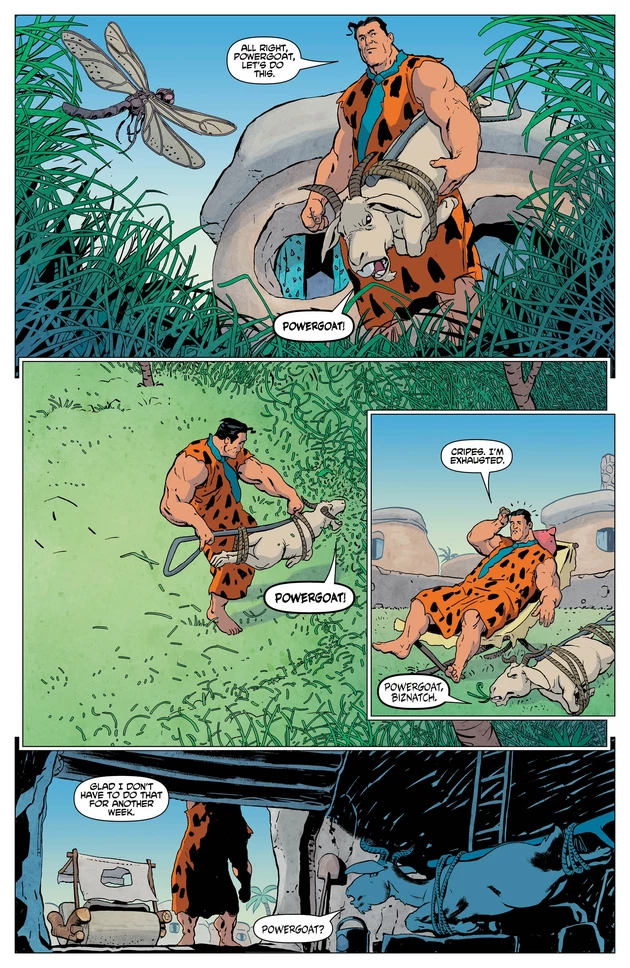The Flintstones #1 was a genuine delight to read, because it’s so different than anything else on the market. It’s a dark, satirical look at modern culture through the lens of the famous Stone Age family. It nods to the original series with puns and character dynamics, but it also has a twisted sense of humor. I recommend it to anyone looking for a different type of comic book.
So, how does the second issue expand on the concept, characters, and story? First, it doesn’t have the element of surprise on its side. So, audiences now know what to expect from the upcoming issues. Second, it’s still finding its footing on what it wants to satirize.

The issue centers around The Flintstones trying to adapt to the changing times with the right appliances. The issue focuses on all those cute animals that help around the house, an octopus dishwasher, a rabbit neck pillow, a goat lawnmower etc. Fred is trying to be a good provider for his family by getting the latest new stuff. He even takes a side job selling vitamins to try and pay for everything, which becomes more of a hassle.
There are some great jokes and ideas that really put this issue over the top. For example, have you ever wondered what happens to an animal appliance after you’ve returned it? Another great moment is watching how Fred and Barney sell their vitamins.
But the comic has a hard time focusing on what to comment on. If it were just about the daily hassles of common appliances, that would be enough for a full issue. But we also get a weird subplot about their religious leaders trying to find a new God for the people to worship, which just ends in a pretty obvious punchline.

The comic does struggle with tone. There’s a sense that this wants to be as clever and subtle as The Simpsons. But it’s use of hyperbole, and dark humor finds itself gravitating toward Family Guy. The comic is still new, and so writer Mark Russell has time to experiment, but he definitely needs to find the proper voice for the series.
What makes this comic enjoyable to read, however, is how Russell portrays Fred Flintstone. From his TV days, Fred was one of the archetypes of the loveable screw up father. He’d make mistakes, but eventually learn his lesson until the next episode. Fred was not a very developed character. But, in this comic he feels much more vulnerable and honest, which makes us more empathetic toward his struggle. He does want to provide for his family, and he does want to be the best he can be, but he has limits that feel real. Fred Flintstone has become a character that I feel a genuine connection to as a reader, and I want to see more of him. In fact all the characters are written well, even when they only have a few lines.

Steve Pugh’s artwork stuns with a detailed cartoon style that’s reminiscent of the show. It allows for the shocking brutality of this world stand out. The animals in particular were all fun to look at with great designs. The “powergoat” in particular got a great chuckle out of me.
The Flintstones continues to be a funny book with great moments and jokes. I have confidence that it will eventually find its footing and create a more consistent satire. DC Comics deserves a commendation for putting faith in a dark, unique, and funny series.


